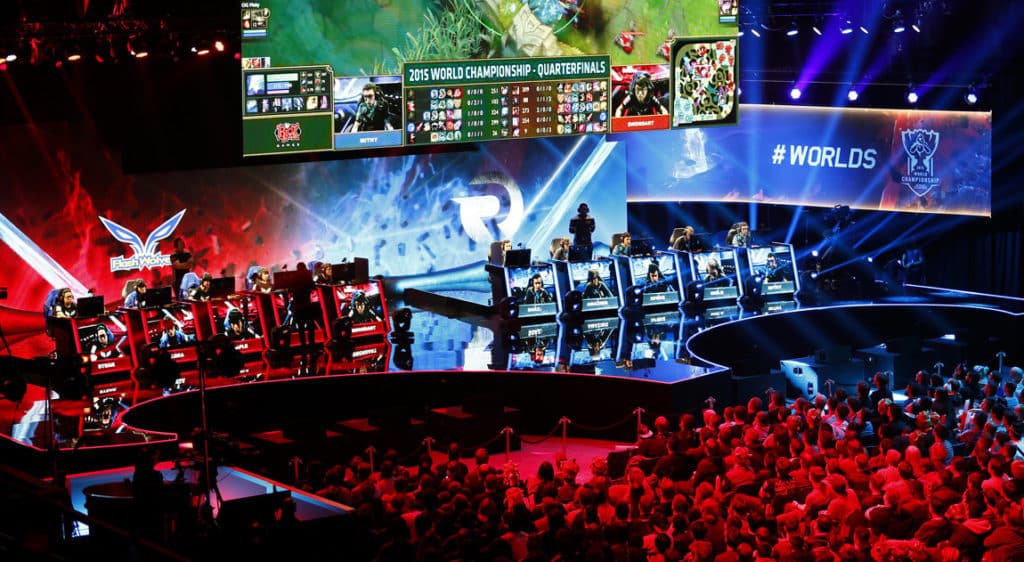Ad | Worlds 2015 image source: Riot Flickr
In this article, Dom Sacco takes a trip down UK League of Legends (LoL) memory lane to recount the moments, tournaments and personalities that have shaped UK League in his decade covering the scene so far.
Legends emerge in LoL’s early days
Prior to the introduction of UK-specific League of Legends esports tournaments, the foundations were still being laid.
Riot Games launched the title in late 2009, inspired by the gameplay of Warcraft 3 mod Defense of the Ancients. Valve went on to make Dota 2 (see our UK esports history for that game here), while Riot focused on League.
Early British casters Leigh ‘Deman’ Smith and Joe Miller paved the way for the homegrown broadcast talents of today.
Deman worked on the second World Championship, in 2012, which also had one UK player competing: Scottish jungler Snoopeh.
Snoopeh was known for staring into the camera before matches. Looking back at this now, it’s almost as if Snoopeh was foretelling the drama that UK League of Legends would bring forth, as if he was looking into our souls, warning us.
The Scot also featured in a tiny news post we wrote back in 2013 about the LoL Season 3 trailer featuring other big names in the game, including Doublelift and Ocelote (aka G2 Carlos). This is so old, it was written back when this site was the author’s personal blog, before rebranding to Esports News UK in 2015.
Early UK teams included the likes of TCM Gaming and Team Infused, with the latter having a host of UK players over the years, including Impaler. Infused competed in early 2010s LoL Insomnias, Epic.LANs and ESL Go4LoL cups, and other community tournaments. They would go on to win the first LoL ESL UK Premiership in Spring 2015, but more on that in a bit.
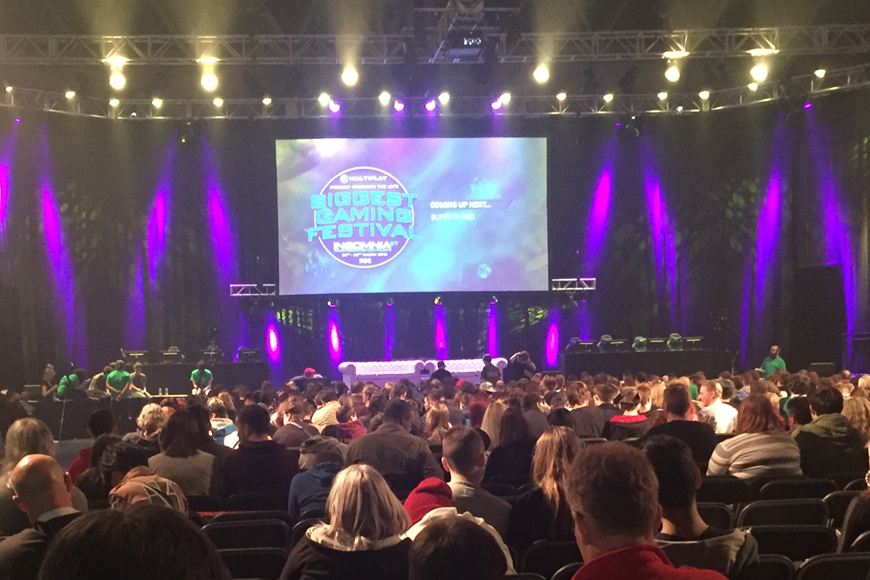
Impaler and Fredy122, who is now Rogue’s head coach, also played to a home crowd at a 2014 EU LCS event at London’s Wembley Arena.
Dignitas and H2K must also be mentioned. Both orgs with UK roots entered League of Legends way back in 2011, with the former signing North American legends such as Imaqtpie, Voyboy and Scarra, and the latter having players like Kasing, Caedrel and Febiven over the years. Both orgs had significant impact in LoL at the top level.
Kasing deserves special mention as a UK veteran player that has competed for well over a decade now, who is still playing in the current UK/Nordics national league.
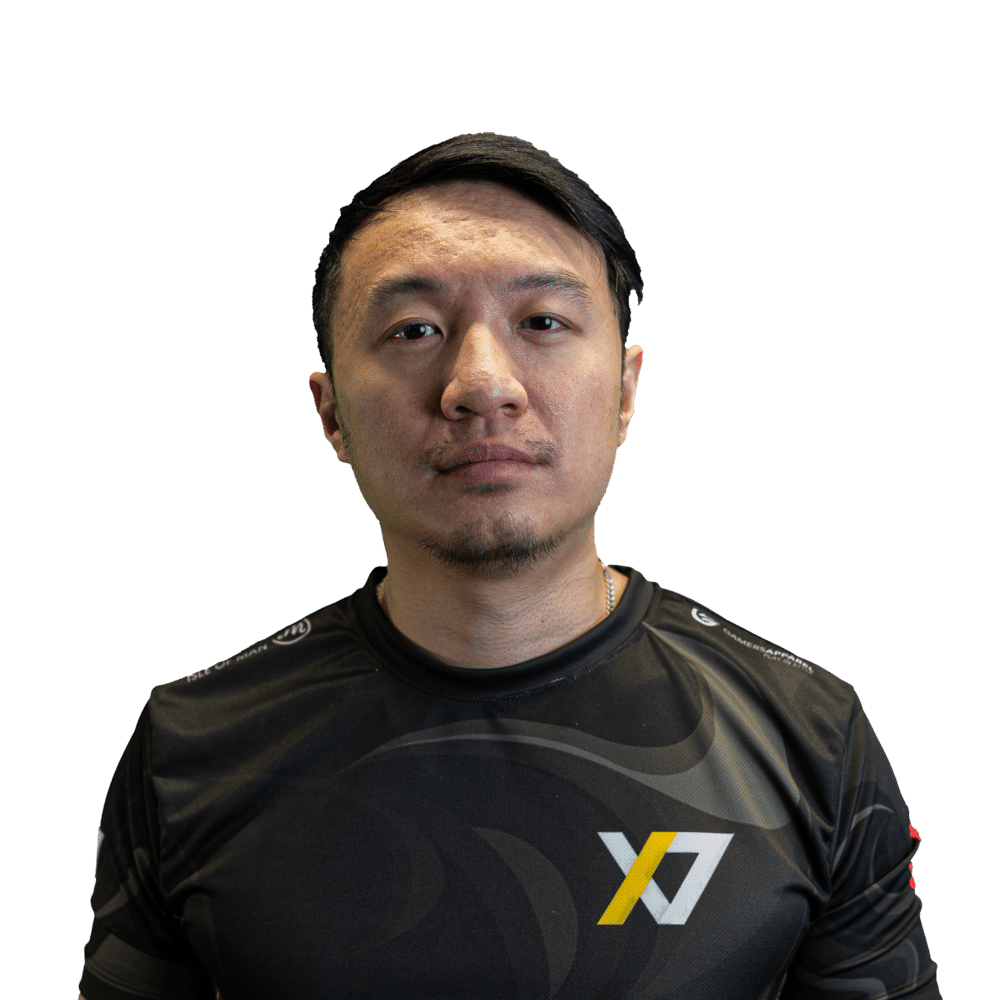
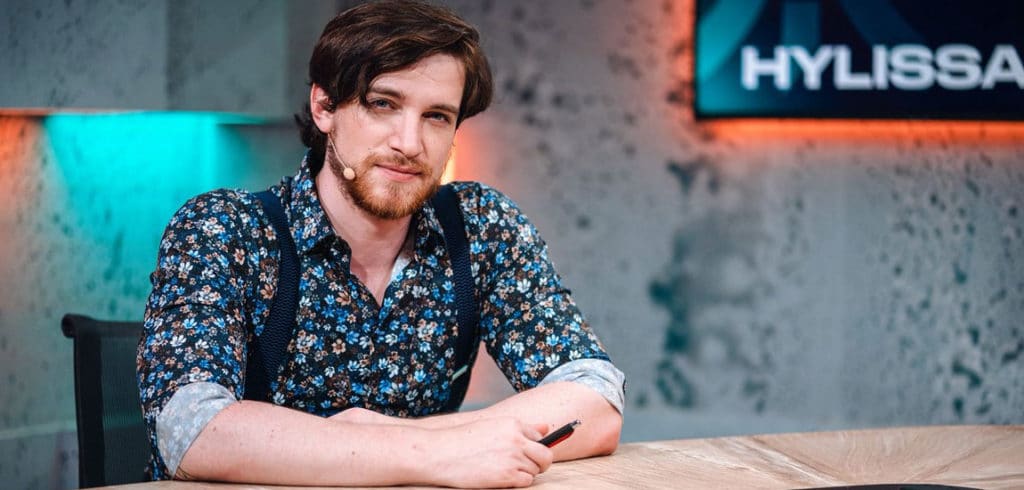
As for UK-based tournaments, in 2010, the UK’s National University Esports League (NUEL) formed.
NUEL founder Josh Williams told us in an old interview: “It was a lot of hard work – nobody turned up to our first event!
“It was a different landscape back then for esports. A lot of the societies were traditional gaming societies with guys who played Warcraft or the original Dota. They had a really weird perception on esports that it was ruining gaming and was a bad influence – that it could corrupt people. They said competitions shouldn’t be a part of gaming, it should just be about having fun. I was like: “Really?”
“We started off with Team Fortress 2, StarCraft 2, CS: Source and more. But it was League of Legends that was so much more popular compared to the rest.”
Josh said more dedicated esports and League of Legends societies started springing up at universities. This grassroots movement was a sign of things to come.
The rise of national leagues
As mentioned, a few years after League’s launch, tournaments at Insomnia and Epic.LAN took place. MCM London Comic Con also received its own esports league, as we covered here some 11 years ago, giving UK players and teams another LAN environment to compete in.
Then came the GiffGaff Legends and 4Nations tournaments of 2014, which all helped to kick UK and Irish League of Legends esports up a notch.
Featuring some of the UK’s best players, teams and broadcast talent at the time, these tournament series acted as a proving ground for talent.
Casters with GiffGaff included Stress, Panky, Phy, Hoss and Munchables, plus Julia Hardy presented the activities, and finals took place at Insomnia Gaming Festival. In the 4Nations, organised by the European Gaming League (EGL), casters also included Panky, Excoundrel, Medic (or Sona, as he was known back then), Kevin Cheung (who is now an esports lecturer) and Pulse to name a few.
Now well-known LEC caster Vedius was a jungler for Cambridge Dongers.
Maxlore was with Perilous Rift. UK veterans like Rifty, Toaster and WaWa played with Team Infused. A team called ‘u wot m8’ had Joekerism, Keys, PropaPandah, Brixton and Wizziu on the team.
Tundra, Dan Hockley and Nutri represented FM Esports, while Numlocked won the event with Choke Gaming (this was our first ever UK LoL interview published in December 2014).
The FM/Choke rivalry started to grow, and the scene started to flourish. This was an exciting, hopeful time for UK League.
Some bypassed the UK league teams, like Veteran, who worked in coaching roles for the likes of Dignitas, H2K and Schalke, before turning to casting (and he also streams).
Numlocked told us at the time of the 4Nations that the Choke team (formerly ‘Mistakes Were Made’) were formed ‘to basically win tournaments within the UK’.
“It was great taking part,” he continued. “It’s definitely the biggest thing happening in the UK right now in terms of esports. I think this was just the beginning of it all. I can only imagine it getting bigger from here.”
That it did.
ESL announced the ESL UK Premiership tournaments in 2015. These aimed to offer something more regular, backed by the big-name tournament organiser. Matches took place each Saturday from 2pm.
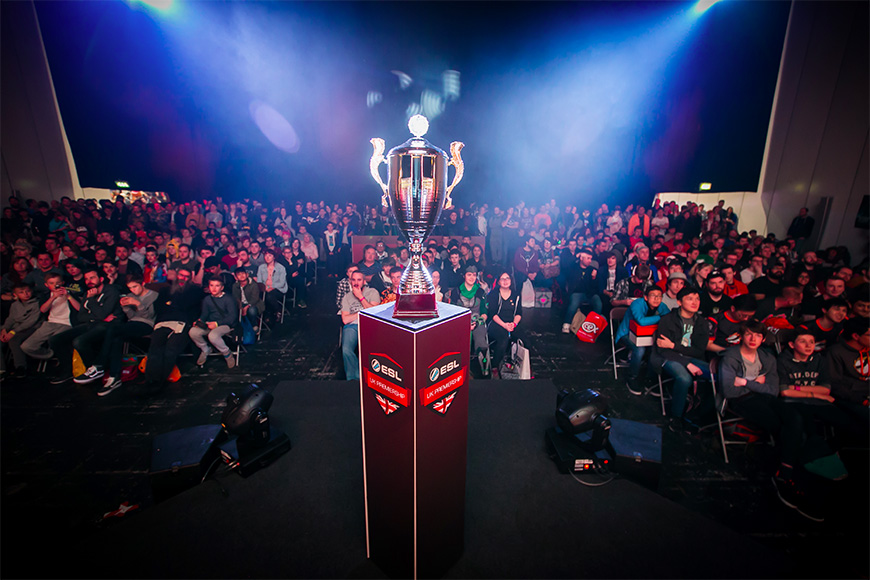
Team Infused won the Spring Season with Xaxus, Impaler, Ulfren, Toaster and WaWa, and the Summer Season with Alphari, Maxlore, Charlietea, POILK and Arphan. The latter roster performed phenomenally, going the whole season unbeaten.
Aged just 16 at the time, top-laner Alphari went on to become one of the UK’s best LoL players, performing at the highest level for several years before stepping back in late 2022. Jungler Maxlore, too, has played for some top teams, and was with Alphari on Misfits when they came so close to beating T1 at Worlds 2017, 2-1 up before losing 3-2.
We interviewed Alphari and Maxlore after their 2015 ESL Prem victory in Leicester, their lighthearted answers capturing the UK’s cockiness and sense of humour in esports.
Alphari said at the time:
“It was a lot easier than anticipated. The least easiest [team to beat] would have been Choke Gaming, when we played them [earlier in the season], but they were still pretty easy.”
Alphari on winning an early ESL Prem
Maxlore sarcastically joked about their support player Arphan, saying: “He’s just multi-role talent. He’s just one of the best players in the world. He’s soon to be [the new] Faker. The German Faker. 100%.”
Over the next couple of years, the ESL Prem would go on to provide more memorable moments, storylines and talent, as the grassroots UK League esports community flourished. It held LAN finals at MCM Comic Con and EGX and at ESL UK’s old Leicester studio.
Teams such as ManaLight, MNM Gaming, Barrage (now Resolve), Enclave Gaming and Excel Esports (now rebranded to GiantX) competed in the ESL Prem and Insomnia’s UK Masters, with UK players like Caedrel, Prosfair, Shikari, The Governor (Raise Your Governors), Kerberos and more plying their trade in the tournaments. Rogue’s Swedish LEC talent Larssen played in the Prem too, as did Vitality’s UK coach Carter (formerly known as Candyfloss).
MediVedi also got experience before becoming household LoL names in the LEC, casting matches like this:
UK Masters still has many fantastic videos and clips available to watch to this day, giving an insight into what UK LoL was like at the time, including this moment where Medic and Excoundrel had to cast a match featuring a player called ‘Noncehunter69’.
Perhaps the most impressive story from the UK Prem era was Renegades Banditos run’ from the ESL Prem right up to the EU LCS. Back then, before LEC franchising was in place, teams from around Europe could make their way to the Challenger Series through the national leagues, and then promote to the EU LCS. That’s exactly what Renegades Banditos did, before being rebranded to Misfits.
Drama, and the UK scene being its own worst enemy
Of course, UK League wasn’t without its difficulties. In a competitive scene with egos, low prize pools and some young, immature talent looking to make a name for themselves, conflict was inevitable.
It was a dog-eat-dog space, with individuals looking out for themselves, and this lack of unity, in our opinion, hindered the potential of many.
It resulted in plenty of UK LoL drama, from team hopping to betrayals, rants, breakdowns in communication, childish insults, leaked DMs, memes on Twitter (we even had our own Memes of the Month feature), unpaid players (see the Munster Rugby Gaming scandal as one example), the list goes on. Teams would come and go, and on a few occasions, broadcasts were cut short because of last-minute dropouts and teams not having enough players to field a roster. Org-less rosters struggled to get organised, resulting in some messy situations.
It was a shame, because the talent was there. In 2016, the Prem had a team with some top talent within it. Last Remedy were formed by Smeagol and Grant Rousseau, now of Falcons, with the roster consisting of Rifty, Broxah, zoiren, Toaster and Nutri, plus coaches Jon Ellis and Mac. There were internal disagreements and it all spilled out publicly.
The wider LoL community wasn’t safe from the UK scene either. Caps, upon joining Fnatic, apologised for previously threatening a UK League of Legends scene player, Hadow, in solo queue. There are countless other examples.
SK Gaming Prime’s current UK coach Jarge branded the UK League of Legends scene ‘a cesspit’ in a Twitter rant.
‘A cesspit of people happy to be big fish in a small pond.’
Jarge on UK LoL in 2016
Tundra wrote a post which highlighted the problems of the UK scene, the unsustainability and difficulties of stepping up to the next level in esports.
Caster Tridd made a comment about the UK LoL scene, saying: “Stabilise yourselves or just quit. Players, if you’re not willing to stay with a team long enough to iron out the kinks, then you have no place in a team sport. Orgs, if you can’t reward your players, don’t be surprised if they want to jump ship. Money isn’t everything. Contract up, so sitting where you eat. You are only as good as the team and/or scene you play in. You can and will get better, you will progress, but don’t you dare for a second think you’re better than the UK scene while you still reside in it.”
Aside from all this, UK LoL viewership didn’t set the world alight, with a few hundred tuning in to watch the old LoL ESL Prem, occasionally peaking in the low thousands. That’s despite 10,000 fans attending a live LCS event at Wembley Arena in 2014 and many also attending the same venue for the Worlds 2015 quarter finals. There was a fanbase here, but it wasn’t that interested in the national league.
So, UK League of Legends esports had a base, but it was fragile.
Changes would soon be made in an effort to fix it – and take it to the next level.
Riot forges a new path: Forge of Champions, UKLC and UKEL launch
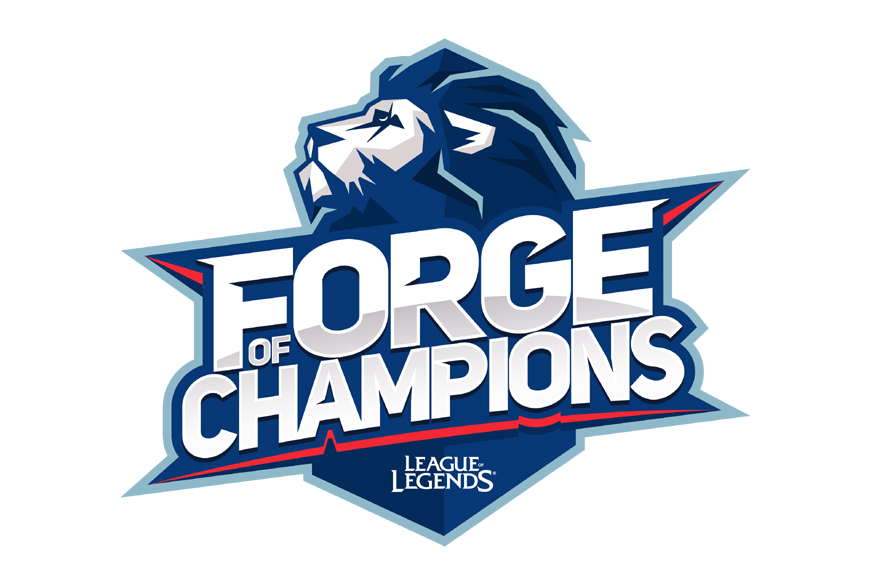
In March 2018, Riot announced it was leaving ESL UK behind to partner with LVP in a three-year deal and try something new: cup tournament Forge of Champions.
This was billed as ‘a high-class triple-A event and a game-changer for the UK, a wake-up call that would propel competitive UK League of Legends into the spotlight, and make it big as or bigger than the LVP in Spain’.
At the time, the Spanish SuperLiga was the most-watched European Regional League. By bringing its organisers, LVP, into the UK scene, it was hoped that this would lift UK LoL.
Forge of Champions featured two spots at the EU Masters (which replaced the EU Challenger Series in 2018) plus a £50,000 prize pool, a significantly higher amount than the early £5,000 and £10,000 ESL Prems, and even the UK Masters’ £20,000.
Riot UK’s head of esports at the time, Mo Fadl, told Esports News UK that millions of pounds in investment went into the project, and there were plans for LVP’s UK-based studio, with the first finals taking place in Spain.
The signs were all there for this to be a success, but unfortunately viewership wasn’t as big as everyone had hoped. While Misfits Academy won the first FoG, there was also ‘a lot of absurd drama’, which not even LVP could escape.
In a bid to professionalise everything further, the traditional prize pool format was swapped for financial stipends, or revenue-based incentives for teams. Organisations were signed to a new tournament, the UK League Championship (UKLC), based on their business models. This would run alongside the Forge of Champions.
“I want to create an esports scene which is healthy and prospering. No drama. It’s time for the UK to step up. We need drama, but it needs to be relevant, impactful and entertaining.”
Riot Games’ former exec Mo Fadl in early 2019
“So rather than being rewarded with a single prize pool we wanted to offer layers of funding to incentivise them to build their brand and to help us build the UKLC,” Mo Fadl said. “The UKLC will reward teams for their league standing, engagement with fans, their reach and more. We want the UK esports scene to grow so we’re looking at ways to help teams and players create sustainable businesses for years to come.”
The Minister for Digital at the time, Margot James, said: “Extra investment in the UK, with companies such as Riot and LVP providing a multi-million-pound, multi-year investment, indicates an extremely bright future for UK esports.”
Beyond this, the UKLC got the scene talking for its unique ‘tower format’. Each week teams attempted to scale the UKLC tower by going head-to-head in a best-of-one knockout tournament. The team that climbs highest then got to face the previous week’s tower champion. If they were victorious, they became the new tower champion, along with a bunch of championship points. The idea was to make ‘every match feel relevant’.
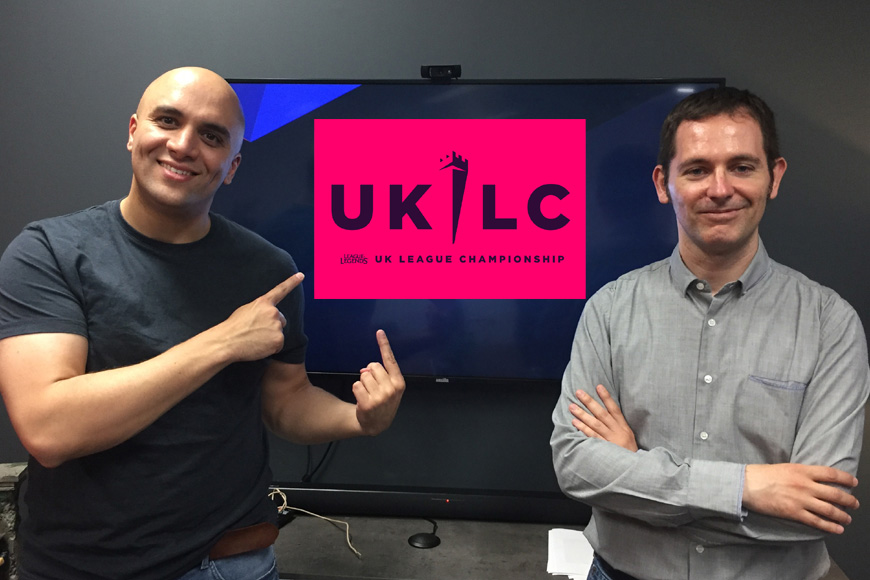
Teams in the first UKLC included Phelan, MNM, Excel, Enclave, Darkspawn, Barrage, Bulldog, Diabolus, and Fnatic’s academy team. This was a great line-up, and the addition of Fnatic and Excel’s academy teams brought more viewers to the broadcasts.
A live finals also took place at Twickenham Stadium in 2019.
This was an exciting time for UK League. In late 2018, homegrown UK org Excel Esports were added as one of the founding orgs in the newly rebranded high-level European LEC, a year after Excel won an old ESL Prem. So their first team competed in the new LEC, while their academy team played in the UKLC. We’ll come onto Excel’s specific story in a separate article to be published later this week.
In the UKLC, players like Monk made a name for themselves. Hadow continued to compete, coach Froomie put his name on the map (and even had to deal with someone stealing his identity), and the likes of Joel and Kieran Holmes-Darby, Barnetto and Furndog put a lot of effort into building Excel. Fnatic Rising produced a great UK core of Shikari, Dan, xMatty and Prosfair, with Swedish mid-laner MagiFelix, and they won the first UKLC.
A few news sites, channels and journalists/content creators covered the scene, including Gromp News and Tom Daniels and Lee Jones.
Around this time, the separate UK Esports League (UKEL) was announced, acting as an unofficial division 2 of the UKLC.
With the work of Marc ‘Omni’ Busby and Alex ‘Synygy’ Winton launching the UKEL, and teams like Absolved, Bulldog, Clique, Lionscreed, Mythos, Nuclear Storm, Radiant Esports and Viperio, the UKEL facilitated the idea of an ecosystem in UK League, adding to the excitement and potential at the time. Its homegrown nature had a certain appeal to it too, that the UK scene resonated with.
Going back to the UKLC, its tower format only lasted just over half a year before being scrapped, in favour of a double round robin tournament.
“Whilst we’re happy the [tower] format provided a unique and entertaining angle for the league, ultimately we believe that the benefits were outweighed by the cons,” LVP said.
“In particular, the reliance on a bracket draw and the differing number of games that teams played throughout the season meant that teams suffered from an uneven playing field.”
Nik ‘Lustriga’ Topham, tells Esports News UK: “After I joined LVP UK, I proceeded to try and smooth the edges of the tower format, take away some of the randomness, all while trying to bring a more traditional format to the table.
“The Gauntlet Playoffs, however, was a great way for an underdog to make the run – which we almost saw Phelan complete!
“The key wins for the UKLC were the incentives for teams to create social content and marketing with team-specific paid incentives, not for player salaries, and getting ourselves accredited and into the global contract database within one split!”
Lustriga on working on the UKLC
“Unfortunately, MediaPro’s decision to drop out of the UK market and focus on LATAM and Spain cut us off before we could create the best ERL.”
As Nik states, LVP ceased operations in the UK in late 2019. The ‘ ‘a high-class triple-A’ project was over.
Dreamhack came in as the new UKLC organisers. But they also had something else in mind.
UK bridges with Northern Europe for NLC, but faces its biggest challenges yet
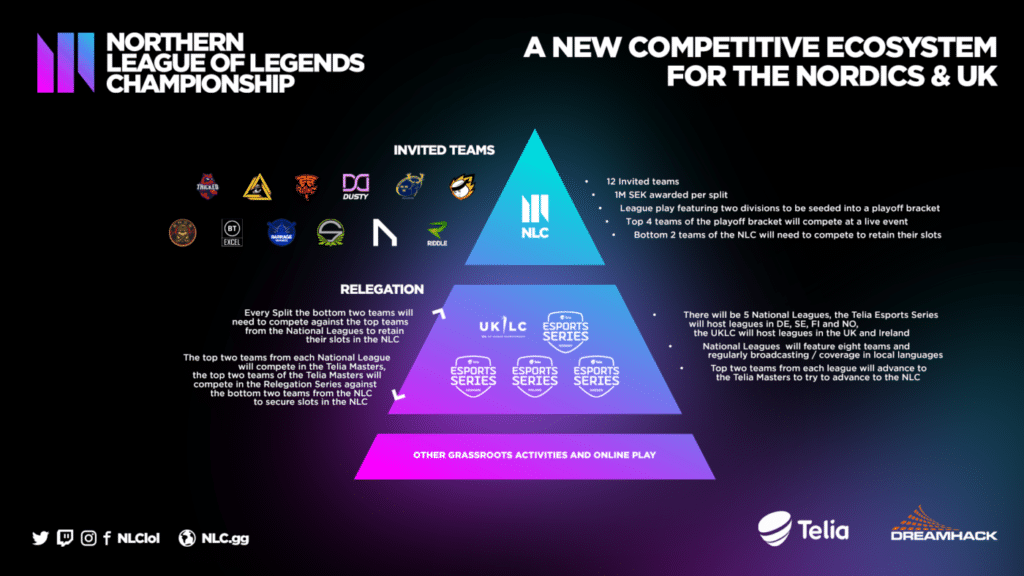
In April 2020, the Northern League of Legends Championship (NLC) was announced. A league from Riot and Dreamhack for Northern Europe, featuring 12 teams in the UK, Ireland and Nordics.
While this was a fresh, interesting move at the time, creating new rivalries and match-ups, allowing UK and Nordic orgs to test one another in a new way, and giving a platform to fantastic rising broadcast talent from outside the UK like Archarom, Troubleinc and Guldborg (as well as new players like Markoon, Advienne, and older legends including Febiven and even Diamondprox), it also resulted in UK League losing some of its identity.
UK LoL personality and Ruddy Esports founder DonJake told Esports News UK two years ago in an interview: “The NLC suffers from disparate nationalistic identities, in the sense that France can galvanise the national mood of ‘we are French’ and get that ‘ultra’ mindset a West Ham football hooligan can so ardently be in support of their team.
“The UK orgs don’t do enough to build their own identity. We’re the UK, man! Even if you’re a London org, London is the capital of arrogance in the West! We’re so braggadocious. I grew up with people in London that said ‘let me have a go on your bike’ then never come back with your bike. Where’s that rebel energy, that devil-may-care attitude?
“I’ve been told not to be a brand risk. But UK orgs don’t work with brands, so you’re not risking anything. What the fuck are Div 2 and 3 teams risking? It’s so insane to me. Go and make a video and stop being so fucking lazy. You all disgust me with what little effort you put in!”
“Mediocrity cannot be allowed to prosper because it’s killed this region for so long, and I, DonJake, herald of change, will do as much as I can to move things in a good direction!”
DonJake, speaking about the NLC in 2022
We’re jumping ahead here. DonJake spoke of Divisions 2 and 3. That’s because in the summer of 2021, it was announced that Freaks 4U would be installed as the new tournament organiser of the NLC, and the UKLC would be scrapped.
The NLC would become a ‘multi-division league ecosystem’ similar to the League of Legends Prime League in the DACH region.
While this may have sounded interesting at the time, it took a tougher turn once Freaks4U began their operating duties in 2022. It led to anger from the UK, Ireland and Nordics LoL esports community over grassroots tournaments like UKEL being shut down by Riot and Freaks 4U.
It soon became clear that Freaks4U worked differently to ESL, LVP and Dreamhack that came before them.
While the NLC broadcasts looked great for the most part, Esports News UK often heard of difficult stories behind the scenes, communication was often poor, and teams began leaving the NLC ecosystem en masse, partly due to a lack of prizing in divisions 2 and below.
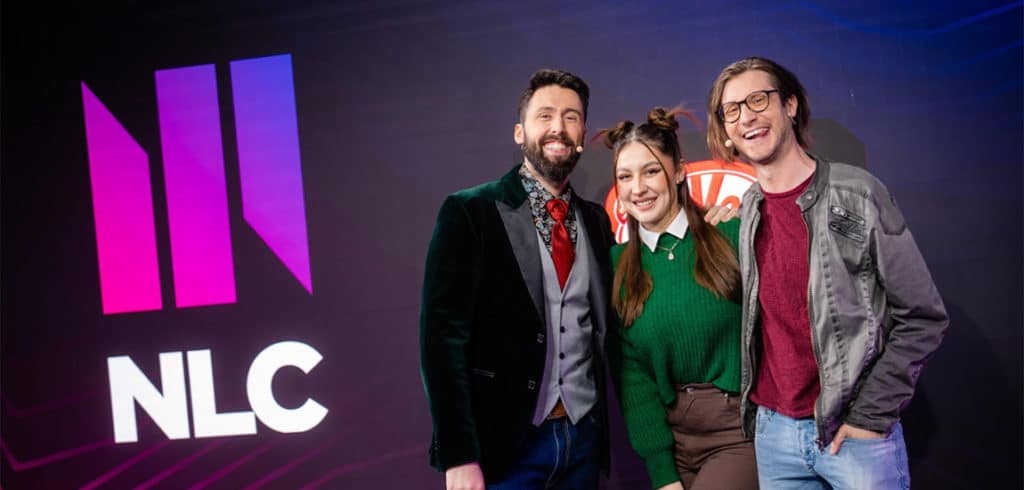
While we still had solid UK teams like Verdant and X7 Esports, who imported South Korean players like Haru and Tempt to their roster, other UK teams like London Esports, Resolve, LDN UTD, Enclave and many more left, as did Fnatic Rising, who moved to the Spanish Superliga instead.
To top it all off, in late 2022, the NLC was demoted to non-accredited ERL status, meaning fewer financial stipends and fewer teams. Orgs and broadcast talent were told one hour before the announcement.
One org owner told Esports News UK at the time: “The league is actually dead. It’s been killed, it’s been murdered. Riot has unleashed the final bullet from the chamber upon the struggling tired race horse. In the words of Nietzsche, the NLC is dead – and we have killed it.”
2023 became a year of change and recovery for UK and Nordics League of Legends esports.
Leagues.gg was appointed operator of NLC leagues for 2023, as Freaks4U u-turned on its stance towards grassroots leagues/operators policy, and LoL National Leagues returned last summer, including the beloved UKEL, which brought back the 4Nations.
Freaks 4U then stepped down as NLC license holder late last year, with Leagues.gg fully taking on the mantle for the NLC in 2024.
However, the region had been hit hard, and recent viewership is low.
The esports winter also hit some orgs hard, with the likes of X7 and MNM closing down.
However, the future is unwritten, and there is still plenty of emerging talent in UK League and beyond.
This talent gives us hope as we look towards the future.
On that note, let’s take a more positive turn in this article.
Everything else UK League of Legends has given us
From major events in London, to student tournaments, women and non-binary leagues, top talent, initiatives like League Fest and more
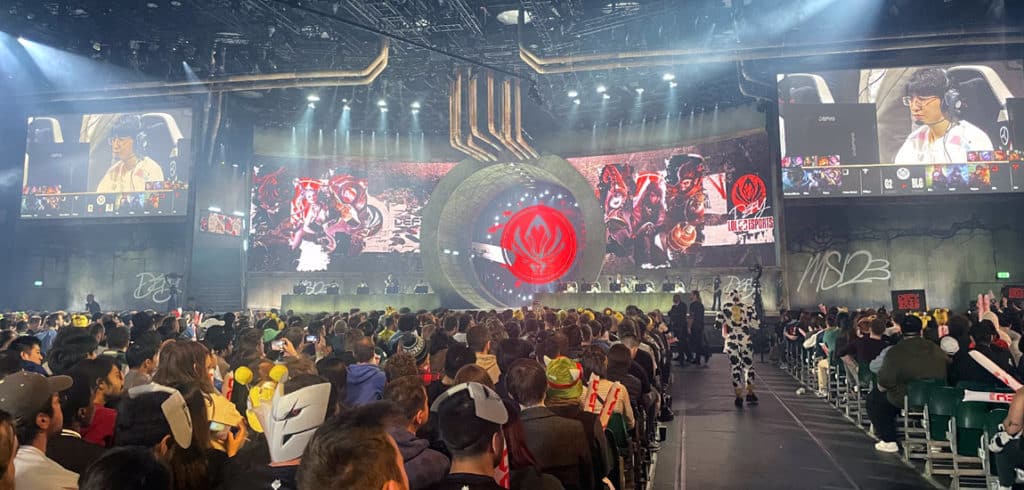
Look, I’m gonna be real with you, readers. This article is already thousands of words long and I have to go and watch my son play in his school athletics tournament in an hour, so I’m going to have to whittle everything else into this section.
If it was my choice and I could pause time, this article would probably be dissertation length, with intricate sections on all the amazing individual talent we have here.
So, apologies in advance as I know I’ve not mentioned everyone, but I’ve had a good shot. And this section aims to mention all the other surrounding parts that didn’t quite fit into the tournament timeline above.
First up, London has been host to some top LoL events, from the EU LCS in 2014 to Worlds quarter finals in 2015 and MSI last year. Leicester even hosted the EU Masters. And this year, we have the World 2024 grand finals taking place at the O2. That’s reason to celebrate.
The mainstream media’s coverage of esports in the UK over the years has been mixed, but the BBC’s focus on Worlds in 2015 was excellent, with Frankie Ward, Julia Hardy and others producing some great content. The same could not be said of the BBC’s coverage of MNM back in 2017, however.
Speaking of broadcasts, the UK and Ireland has produced excellent talent over the years, from the aforementioned Medic and Vedius to others like Nymaera, Initialise, Yinsu, Jamada, Eragon, Aux, Veteran, Hiprain, Munchables, GreyHart, Excoundrel, Middlecott, Dagda, Oisin, Foxdrop, DocDa, Roodood, Jreal, Blackbloxer, Temporal and too many others to list (sorry if we’ve missed anyone)! Plenty of non-UK talent have gained experience in our leagues too, like the aforementioned NLC casters, as well as the likes of Giniro, Chronicler and more.
Aux went from Excel player to caster, while some have transitioned to other areas, for example former LoL caster CounterfeitCast is now focused on League strategy title TFT, and iTzSTU4RT on mobile game Wild Rift, while MaskedSwan went from casting to production, working at Freaks4U on the LEC for a while before moving to Magic The Gathering.
The UK’s biggest name in League right now, Caedrel, went from player to caster and is now a streamer for Fnatic, with more than 1m combined followers across his platforms and streams that regularly have tens of thousands of live viewers.
He also became known for cancelling an ult by accident, which led to lots of memes, of course:
Speaking of Caedrel and the BBC, he also featured in a documentary while playing for Excel Esports, called ‘Fight For First’, which provided insight into life with a pro esports team.
He also reacted to our MSI interview with Caps last year, which led to UK grime artist JME tweeting out ‘Man Like Caps’. UK League brings us to some strange places at times.
While Caedrel is the biggest UK LoL streamer today, we’ve had plenty of entertaining content creators over the years, from Bizzleberry to Baffy, Foxdrop to NoArmWhatley, HuzzyGames to RossBoomsocks, Dragdar to Spearshot and Rezone Games to Miaowiee to name a few, and controversial streamer Gross Gore, who has been banned on Twitch, ‘quit’ League of Legends and blacklisted from gaming events more times than we can count.
Let’s not forget the likes of Perkz, the UK teacher mistaken for pro player Perkz, who ended up signing to Cloud9, and streamer Vicksy, who was the first woman to play in the old ESL UK Premiership and has competed in several Twitch Rivals tournaments over the years.
Speaking of female talent, in recent years we’ve seen the rise of women and non-binary tournaments in the UK and Europe, an important move to help make the scene more inclusive. The NUEL’s one was originally created by Anisah ‘Geomancy’ Munim and Natacha Jones, with Lauryn Halpenny being an advocate for the space.
University bodies NUEL/University Esports UK and NSE have held these tournaments, plus we’ve seen tournaments like the Equal Esports Cup, Rising Stars and Pathfinders emerge. The Lionscreed Lionesses became the first women’s team to qualify for the UKEL last year, and G2 Hel have played in the NLC Division 2.
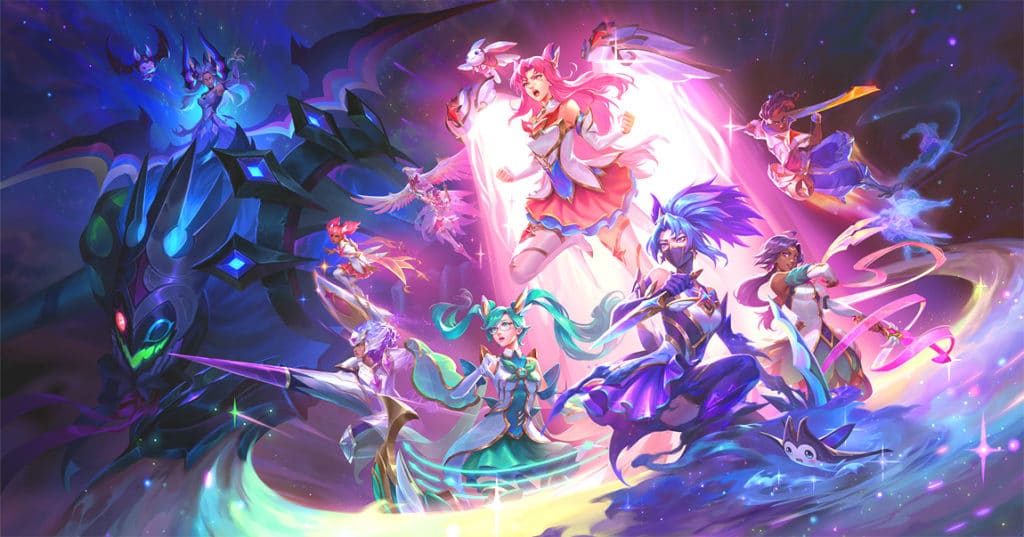
The NSE and NUEL have continued to provide university LoL tournaments over the years, as has the British Esports Federation with its Student Champs for college students.
We’ve seen UK League of Legends players participate in other leagues, like Deadly and Maxlore and NoName in the Spanish SuperLiga.
The UK has been blessed with some top coaches, too, from Carter to Mac, Duffman, Shaves, Jon Ellis, fredy122, Ewbuff and Peter Dun all currently working in the top-level European LEC, not to mention good UK ERL level coaches like OfficerNaughty, Froomie, FrozenDawn and more. Coach Kybet now lectures for Staffordshire University’s esports degree.
UK culture has crossed borders (a ‘Wenger Out’ sign was spotted in an NA LCS event), and we’ve brought talent to our shores.
In 2016, Riot Games and Multiplay teamed up for an ambitious project – League Fest, an in-person celebration of all things LoL at Insomnia Gaming Festival.
With streamers, cosplayers, meet and greets, merch stalls, a viewing party and a pro-am esports tournament featuring Voyboy, Dyrus and more, it was a welcome event with more than 3,000 attendees, and moments like this:
But there were some issues, and League Fest has not since returned to the UK, although we had a nice community gathering at Insomnia last year.
Gaming bars have held community gatherings, like Sidequest, Platform, Meltdown, Pixel Bars, New Meta and more, and other unusual events like Red Bull’s 1v1 tournaments and 5G North vs South tournament have taken place in the UK, with the latter awarding bonsai trees and trips to Japan to the esports winners.
Esports News UK has also held watch parties, networking gatherings and community LoL tournaments.
We’ve had some good scouting grounds/proving grounds events over the years too, to highlight rising talent in the game.
We’ve had spin-offs, like the ESL Wild Rift Premiership, and community TFT tournaments.
Excel’s Neosurf Cup was an excellent community event featuring showmatches and meet and greets, and talent like Sjokz, Medic, Foxdrop and Frankie Ward.
Alex Lyndon, Esports Student at Staffs Uni, told Esports News UK: “The Neosurf Cup was my first in-person esports experience.
“The Neosurf Cup felt like it was such a beautiful marriage of esports with the UK sports fandom culture, especially combined with the venue (Twickenham Stadium).”
Alex Lyndon, esports student at Staffordshire University
“The classic EXCEL ESPORTS LA LA LA LA LA chants were obviously a staple, but it was so nice to have the opportunity to meet people, and especially crazy when you look at where people are now (Boaster for example, who was doing vlogs/content for XL at the time, now being a household name in Valorant which is REALLY cool). Caedrel was playing for XL at the time, Kasing too who has stayed within the UK/EU ecosystems since, iTzSTU4RT becoming huge in Wild Rift since that released.
“I think it was a really fun spot on the roadmap of UK esports in the grand scheme of things, and I think when you look at the journey the people involved have had since, it’s amazing to look at the breadth of experiences that it was host to.”
Caster Nymaera added: “Fun fact about Neosurf cup: Initialise, MaskedSwan and I all went there as friends just before we started casting. I have the signatures from Medic, Foxy and Frankie somewhere! That was a huge gathering of talent.
“We went on to do LJL Officially Unofficial [the channel covering all the games from the Japanese LJL in English] a month or two after that point, that was the start of my career.”
We have to give another special mention to the UK LANs, like Insomnia, for giving us moments like Ruddy’s recent i72 win, four-time winners Cabbage Corp, and, probably one of our favourite moments at an Insomnia final, this insane 1v3 play by RoyalWinsMid (casted by GreyHart and Chronicler):
There was some odd mainstream coverage of UK League at Insomnia by ITV here.
Looking ahead, we’ll cover the future of UK League in a general article on the future of UK esports over the coming few months.
But for now, despite its ups and downs, we still believe UK League of Legends has an exciting future, with potential.
From Ruddy’s music videos, diss tracks and funny interviews, elevating beyond UK League to attracting a more global fanbase, and orgs like Lionscreed getting to EMEA Masters and Verdant being as professional as ever, to all the talent we’ve mentioned in this article, this community is still strong, as highlighted in this recent opinion piece on LoL at Insomnia by Gov from UK team Brod n Friends.
‘The community must realise the power they have in making the UK League scene succeed’
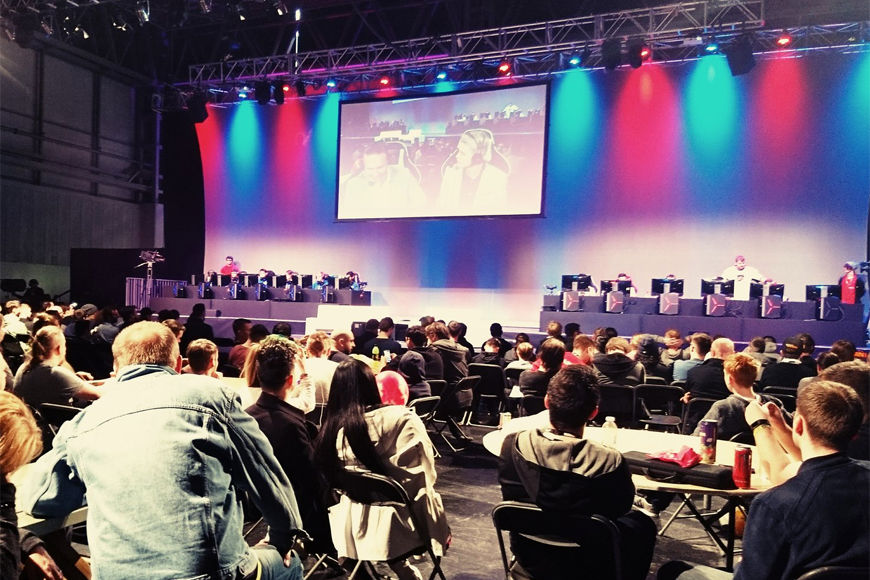
We’ll leave the final word with Synygy of the UKEL, who took the time to send us his thoughts for this article.
“In the past, the biggest issues for me for the competitive UK LoL scene have been a lack of professionalism (in all aspects: players, orgs, TOs, etc), a lack of support from Riot (support peaked in 2014, then gradually declined then essentially disappeared),” he said.
“We’re doing significantly better in the professionalism department now: players aren’t dropping slurs left right and centre on Twitter, it’s rare to see orgs scamming their players/staff, and even the small orgs are capable of producing good content, competitive teams and so on.
“The future here is simply to keep steadily improving as the consistency is there now and so given a bit of time it will lead to more investment, which should hopefully create a positive cycle where: the scene improves (content, tournaments, events, etc.) Money comes in, the scene improves, and so on…
“The lack of Riot support has turned around immensely since 2023. They approached us at the UKEL directly to run the UK&I’s National League and have been able to provide us with a huge amount of support as well as communicating with us significantly more than previously.”
Synygy, UKEL
“It finally feels like we have someone fighting our corner. Shout out to Fridgecake [aka Will Bear, Competitive Experience Manager at Riot Games]!
“As for the future, I can say expect to see more and more events happening in the UK (see World Finals this year), more regular activations and Riot presence at existing events, and continued direct support for our ecosystem.
“What I’d like to see more of is the community realising the power they have in making the scene succeed. Historically, orgs have always been fighting for the small amount of money/investment that has been available and so they adopted a “me first” approach (which I can understand).
“Fortunately that has improved a lot, with orgs interacting with each other a lot more than they previously did, but I think there’s a long way to go in terms of the scene as a whole getting behind the TO as well as our teams that progress to international events (e.g. NLC RPS).
“At the end of the day, for a grassroots TO such as ourselves, we rely on our numbers on Twitch and socials to secure sponsors/investment and so orgs supporting every tweet/stream related to the tournament, and not just their own, benefits everyone in the long run.”
And that, my friends, is surely what esports is all about. The community, lifting one another, celebrating a great game we have.
UK League has changed my life, and clearly the lives of others outlined in this article. The first ten years I’ve been covering this scene have been a rollercoaster – here’s to the next ten.

Dom is an award-winning writer and finalist of the Esports Journalist of the Year 2023 award. He has almost two decades of experience in journalism, and left Esports News UK in June 2025.
As a long-time gamer having first picked up the NES controller in the late ’80s, he has written for a range of publications including GamesTM, Nintendo Official Magazine, industry publication MCV and others. He also previously worked as head of content for the British Esports Federation.

